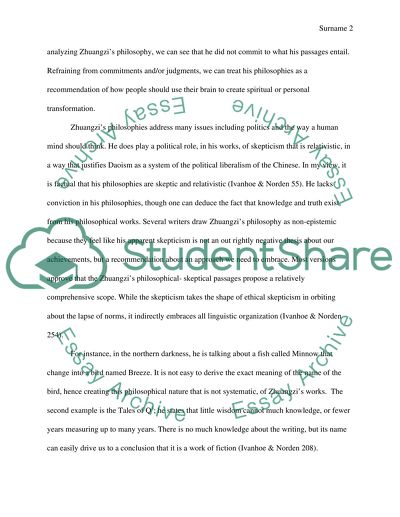Cite this document
(“Philosophy of Zhuangzi is a form of Skepticism Essay”, n.d.)
Philosophy of Zhuangzi is a form of Skepticism Essay. Retrieved from https://studentshare.org/philosophy/1497620-philosophy-of-zhuangzi-is-a-form-of-skepticism
Philosophy of Zhuangzi is a form of Skepticism Essay. Retrieved from https://studentshare.org/philosophy/1497620-philosophy-of-zhuangzi-is-a-form-of-skepticism
(Philosophy of Zhuangzi Is a Form of Skepticism Essay)
Philosophy of Zhuangzi Is a Form of Skepticism Essay. https://studentshare.org/philosophy/1497620-philosophy-of-zhuangzi-is-a-form-of-skepticism.
Philosophy of Zhuangzi Is a Form of Skepticism Essay. https://studentshare.org/philosophy/1497620-philosophy-of-zhuangzi-is-a-form-of-skepticism.
“Philosophy of Zhuangzi Is a Form of Skepticism Essay”, n.d. https://studentshare.org/philosophy/1497620-philosophy-of-zhuangzi-is-a-form-of-skepticism.


